CBS’ Dean of Research answers critique on bad working conditions for PhDs
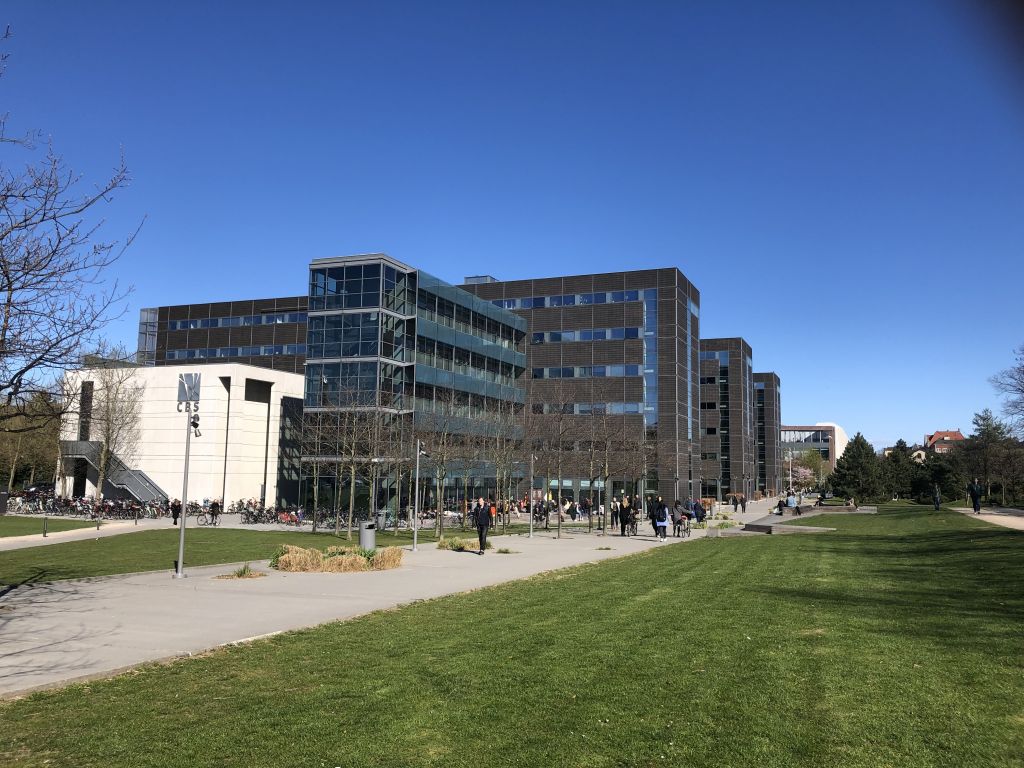
(Photo by Mette Koors)
While Dean of Research Søren Hvidkjær acknowledges a problem with stress among PhD students, he does not believe that CBS could have acted differently and let PhDs work on campus sooner during the Covid-19 lockdowns. That is his response to the critique voiced by the outgoing Chairman of the PhD Association of CBS.
Many PhD students are feeling the pressure of having to conduct high-quality research in working conditions that are constantly changing because of the corona pandemic, making field work abroad difficult or simply getting into campus during lockdown almost impossible.
This sad tendency is also a reality at CBS, where a new internal survey reveals that only 40 percent of PhDs “almost never experience stress”, meaning 60 percent of the students experience the opposite and must deal with stress.
This is not at all surprising to Thomas Skinnerup Philipsen, who until March was Chairman of the PhD Association of CBS. In a recent article by CBS WIRE, he criticizes CBS for not caring about PhD students’ welfare and for being too fixated on rules and regulations.
Now, CBS’ Dean of Research, Søren Hvidkjær, replies to the critique.
He acknowledges the results from the internal survey, which shows that many PhDs at CBS indeed suffer from feelings of stress.
“Unfortunately, many PhD students experience substantial stress. However, the survey does not tell us from where the stress comes. Therefore, we are currently working on a specific PhD survey to learn about this and what CBS as an institution can do further to help,” says Søren Hvidkjær.
In addition, several activities such as week-long mindfulness courses or sessions with coaches have been set up to help PhD students to get their projects back on track and to improve their well-being, he elaborates.
Disagrees that CBS has not helped PhDs during lockdowns
Besides condemning CBS’ handling of stress among PhDs, Thomas Skinnerup Philipsen also criticizes how the university tackled the lockdowns during the Covid-19 pandemic.
“During lockdown it was commonly known among fellows that at KU and DTU, fellows were allowed to work on campus in their offices and the labs, but at CBS we weren’t allowed to come in at all for a majority of the time. This unnecessarily deteriorated the work-life balance and overall working conditions for many of the PhD fellows,” he says.
But this is not something that Søren Hvidkjær recognizes. He believes that CBS has done everything it could to get students back on campus during the corona pandemic.
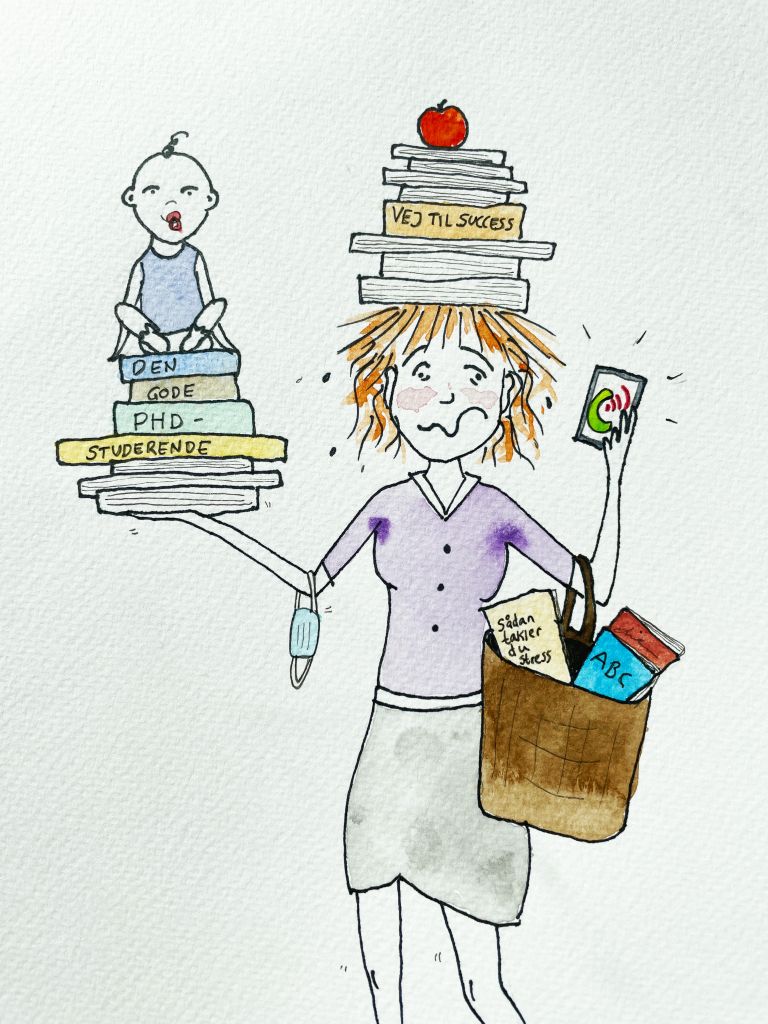
(Illustration by Ida Eriksen)
“CBS has followed the rules set out by the health authorities and the Ministry of Higher Education and Science and we have opened campus as soon as the restrictions allowed it. The PhD students were in the priority group of those who were the first to be allowed back on campus. That being said, I fully understand that the pandemic has been a huge challenge for PhDs,” he says.
Sorry if students think it is a race against time
Another criticism from Thomas Skinnerup Philipsen on behalf of the students is CBS’ way of pushing PhD fellows to complete their studies within three years, instead of granting them more time, due to delays on field work abroad caused by Covid-19 regulations.
Again, Søren Hvidkjær disagrees and states that CBS gave full salary to and extended the contracts of 89 PhD students, equivalent to around one third of all PhD fellows to give them more time to finish their projects. He also states that it is actually possible for PhDs to study beyond the three years to a maximum of seven years.
“I am sorry to hear that some PhD students believe that CBS only cares about completion times. However, while progress in one’s studies is clearly important, that students complete within three years is actually not something of very high priority to us. In fact, the average completion time across CBS is more than 4 years,” he concludes.


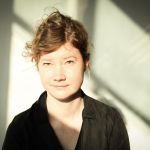
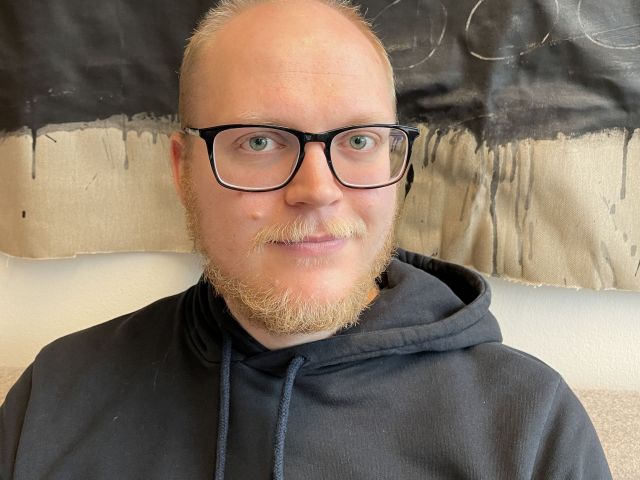
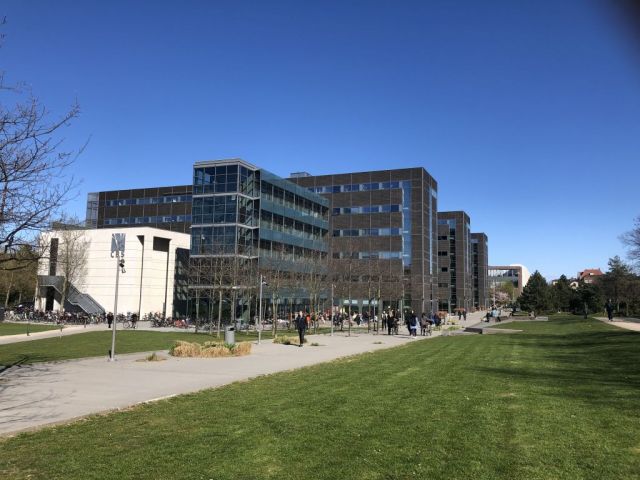
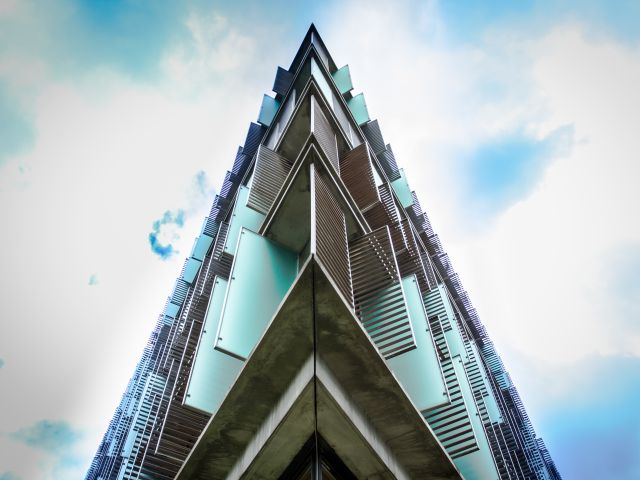
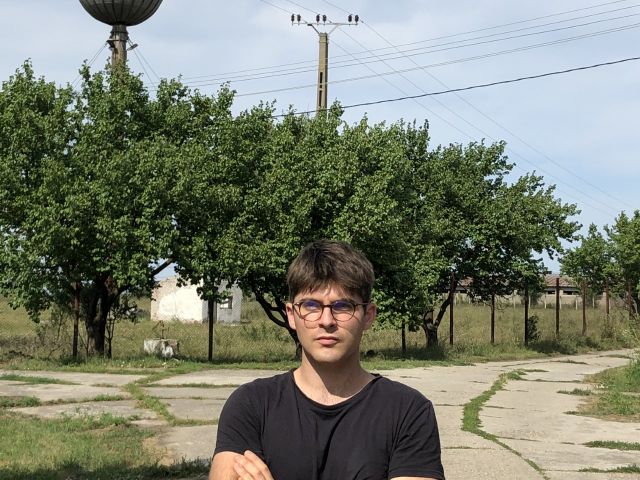




























































































































Comments